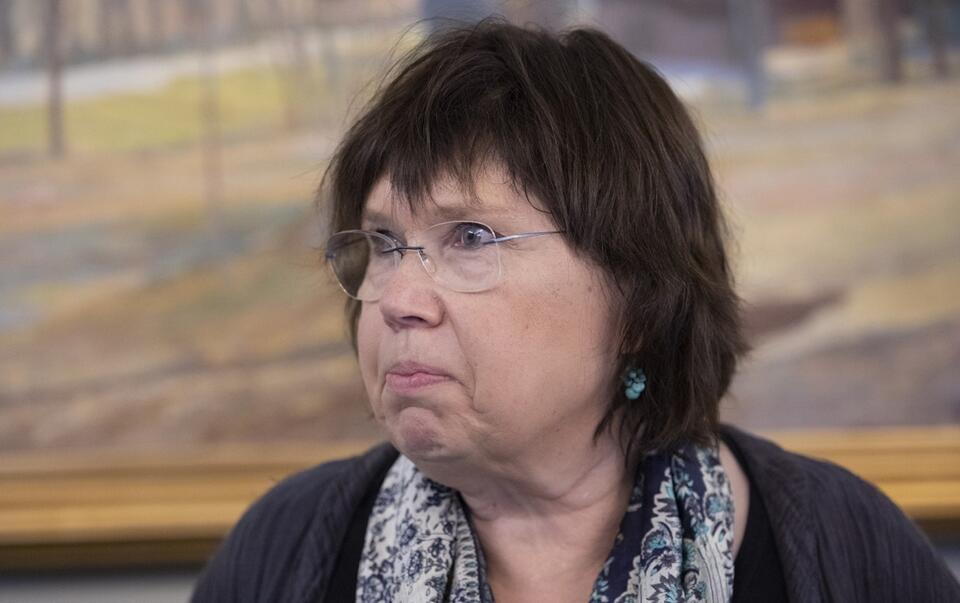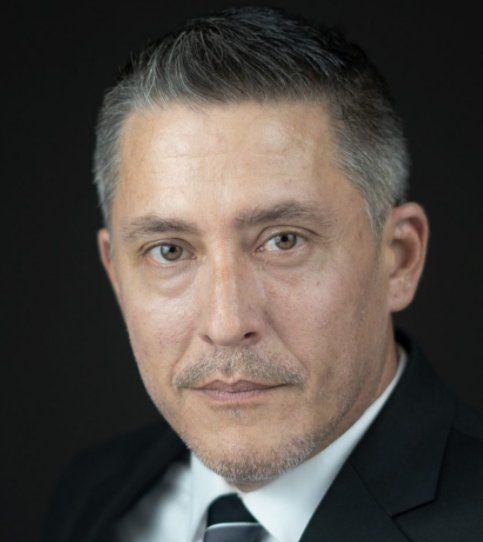
Why Barbara Engelking and her supporters are wrong and why we should all be aware of the history and historical context of Polish-Jewish relationships.
Why Barbara Engelking and her supporters are wrong and why we should all be aware of the history and historical context of Polish-Jewish relationships.
"The very concept of objective truth is fading out of the world. Lies will pass into history." George Orwell
Sometimes people support so-called "academic freedom" while sacrificing their integrity.
When they do this, it also shows how little they know about the past and how easily they are swayed by what is popular, not just and virtuous.
I have been watching this as institutions and historians came to the defense of a Holocaust scholar who recently stated Polish people didn't do enough for the Jews during the Holocaust.
This statement is a sweeping generalization, lacking any self-awareness or actual context. If Barbara Engelking is truly a historian of Polish-Jewish relationships, she should know better than to make such a simplification.
American historian István Deák has aptly remarked, "No issue in Holocaust literature is more burdened by misunderstanding, mendacity, and sheer racial prejudice than that of Polish-Jewish relations during World War II," and he is correct; I witness this all of the time.
"Over the last thirty years," notes Lawrence Weinbaum, "much of world Jewry has displayed a keener sense of hostility toward Poland than Germany. Poland, not Germany, is often seen as the ultimate place of evil… Part of the hostility to Poland is based on the entirely false impression that Germans chose occupied Poland as the venue for the death camps because they could court Polish cooperation in carrying out the Final Solution. Although no historical evidence supports this contention, it has gained very wide currency and credence. Careless references to 'Polish extermination camps,' rather than German or Nazi camps, also fostered this perception. Popular literature, not always based on objective scholarship, has also played a leading role in shaping the popular image of Poland. Novels (and subsequent film adaptations) by popular writers such as Leon Uris (Exodus, Mila 18, QBVII), Gerald Green (Holocaust), and others have done much to influence the way we think about Poland and the impression gained from these books has generally been negative. In such works, Poles are often portrayed in a worse light than the Germans, and it sometimes seems that the burden of guilt for the Holocaust has been shifted to the shoulders of the Poles."
The reality is in stark contrast, Poles faced draconian punishments for even giving a Jew water; this meant the execution of their entire family and sometimes the village. No other nation faced such repercussions, and obviously, there is a reason for this; Poles did aid Jews unlike anyone else; otherwise, there would be no such punishment.
Here is some rather unknown history of providing insight into the other side of the story that is rarely heard.
So how was it when Poles were targeted at the start of the war when they were the primary targets; remember Auschwitz was built for the Poles, not the Jews, and Poles were hiding in the Ghettos trying to avoid round-ups and execution. Poles were being murdered at a much higher ratio than Jews, and letters attest that Jews were actually contented about this, not disturbed.
Hitler declared the necessary killing "without pity or mercy all men, women, and children of Polish descent or language. Only in this way can we obtain the living space we need." Hitler also planned that "the destruction of Poland is our primary task. The aim is not the arrival at a certain line but the annihilation of living forces … Be merciless! Be brutal! … The war is to be a war of annihilation."
Richard Lukas writes about conquered Poland: "The genocidal policies of the Nazis resulted in the deaths of about as many Polish Gentiles as Polish Jews…. this [Polish Gentile] holocaust has been largely ignored because historians who have written on the subject of the Holocaust have chosen to interpret the tragedy in exclusivist terms — namely, the as the most tragic period in the history of the Jewish Diaspora. To them, the Holocaust was unique to Jews. Therefore, they have had little to say about the nine million Gentiles, including three million Poles, who also perished in the greatest tragedy the world has ever known."
Almost no one knows of this because practically everyone's knowledge of Polish-Jewish relationships and the war begins only with the Final Solution.
We must also remember that the Final Solution did not begin until much later in the war.
Therefore, Jews within the ghetto collaborating with Germans were not doing so under the threat of death, which we hear as a reason why Jews collaborated, but is factually incorrect.
There is a moral double standard regarding the Polish; also, Polish police had to collaborate under the threat of death – and the Blue police were minute and played no part in the round-ups like the Jewish police (during the massive deportation of some 265,000 Jews from the Warsaw ghetto in the summer of 1942, "Jewish police delivered 7,000 victims for transport to Treblinka [on July 25] and from then on delivered them at a minimum daily rate of 10,000. The average Jewish policeman in the Warsaw ghetto sent two thousand Jews to their death 'to save his own life.'). Most Jewish police also bribed their way onto the force.
This shaming plays out now as a pedagogy of shame taught to many Polish people, just as Barbara Engelking states. Yet, Poles faced the death penalty for any minor crime, causing group retribution. For example, ten people could be executed for the crime if someone was caught with an underground paper.
So where was the outcry from the Jewish leaders (Judenrat), like the Polish government in exile (or even in occupied Poland), when the Final Solution began? Furthermore, Poland for two years was occupied by the Soviets, and many Jews collaborated, committing crimes against the Polish; when did they help save Poles there?
This situation and era is a whole history for being explored, something I have, but few will endeavor. Just an example. Jan Stancyzk, a socialist, whom no one can accuse of antisemitism, stated to the representatives of Polish Jews in 1943:
"I do not want to hide it and admit that among the people who returned from Russia as well as in the army, there is an antisemitic frame of mind. I must confess this with a heavy heart, but one cannot remedy this with an order. The reason for all of this lies in the fact that when the Bolsheviks came to Poland, the Jewish militiamen walked around with lists and pointed out those to be deported from among the Poles. Therefore, it seems to every Pole, were it not for the Jewish Militiaman, he would be able to remain at home on his farm."
Why do I share this inconvenient information? I am not trying to be offensive or aggressive, but people need to know the context, relationships, and situation. Is this not hypocritical to even dare state Poles even had to help Poles, although they did overwhelmingly?
Think about that now, considering how the Jews often treated them.
Historian Yisrael Gutman, a Warsaw ghetto fighter and Auschwitz prisoner stated:
"There is no moral imperative which demands that a normal mortal should risk his life and that of his family to save his neighbor. Are we capable of imagining the agony of fear of an individual, a family who selflessly and voluntarily, only due to an inner human impulse, bring into their home someone threatened with death?"
Estimates of Poles aiding Jews are as high as three million, again all at risk to the entire family's lives, but that is almost always left out – that's why context is vital (The Danish underground and boatmen who transported Jews to Sweden exacted huge sums of money from the Jews, even though that rescue entailed no real risk because it was carried out with the connivance of the local German naval command.)
So did Poles have to help anyway? Would you help? Again, did Jews help Poles?
Zofia Kossak-Szczucka, one of the founders of Żegota, the underground Committee for Aid to Jews, that saved the lives of tens of thousands of Jews at the cost of thousands of Polish lives wrote her 1942 pamphlet "The Protest": "We realize they [the Jews] hate us more than they hate the Germans and that they make us responsible for their misfortune."
Does this feeling still linger? Will we soon hear that the Germans came to liberate the Jews from the Polish? From what I read, I am afraid we are getting close to this at this stage due to ongoing misinformation and deception.
And many Poles did this, but Yad Vashem did not honor them. The number that Yad Vashem proposes for Poles risking their lives for Jews is minute, and if it were factual and trees planted for the righteous Poles, there would be a forest.
So perhaps we may all consider the hard facts before supporting someone based on assumptions and so-called freedoms.
Freedoms to shame? Freedoms to blame others for something they would not do?
I am not trying to shame the Jews. Still, I am trying to provide background on this era and both groups' horrific situations so people can make reasonable and rational judgments about blame.
Before we point the finger at others, we should always search ourselves to ensure we are blameless.
Maybe we should all challenge ourselves to think hard about the past and the situations people faced, factually assess a situation, and then reason before blindly supporting someone.
After reading some of this, maybe consider whether some people have the right to blame others or if anyone can blame others for "not doing enough" in the Poles' situation.
Ostatnio
dodane komentarze
Ten artykuł nie ma jeszcze komentarzy.
Categories
- Current issues
- Beginning of World War II
- German occupation
- Soviet occupation
- Soviet Union
- Biographical notes
- Heroes
- Villains
- Podcasts
- Documentaries
- Second Polish Republic
- Third Polish Republic
- Soviet German relations
- Polish Armed Forces in the West
- Polish Jewish relations
- Polish Ukrainian relations
- Polish American relations
- Polish British relations
- Non-Polish related
Login

Who am I? Get to know me closer
I am using this platform to continue the battle against revisionism and propaganda. Poland fought and suffered and are now being attacked in a variety of ways for various agendas.
In the name of historical accuracy and truth, we must respond.
Jews & Poles Database
Check the compendium of informations about Polish-Jews relations and encounters.
MoreLatest
articles
Latest
comments

In a time of universal deceit, telling the truth is a revolutionary act
- George Orwell
Dodaj
komentarz
By dodać komentarz musisz być zalogowany. Zaloguj się.
Nie masz jeszcze konta? Zarejestruj się.